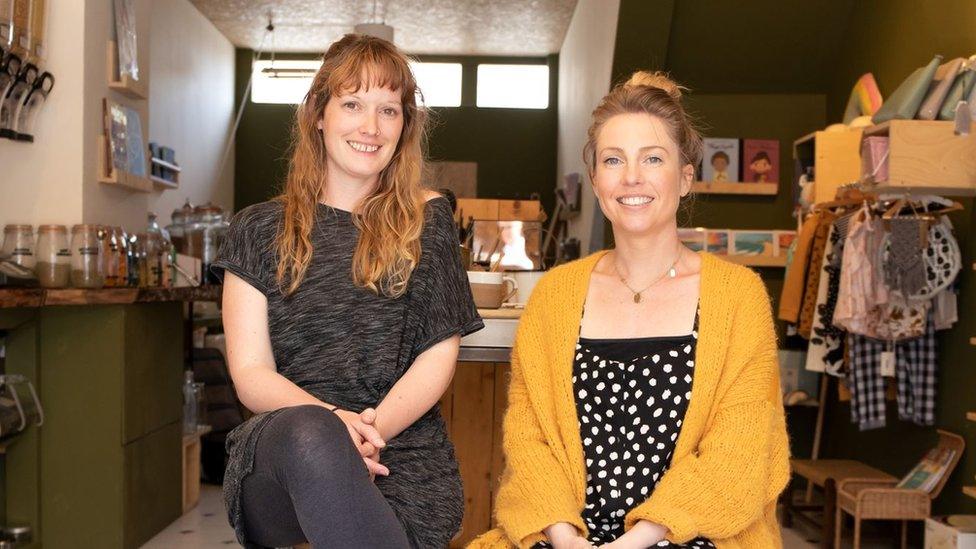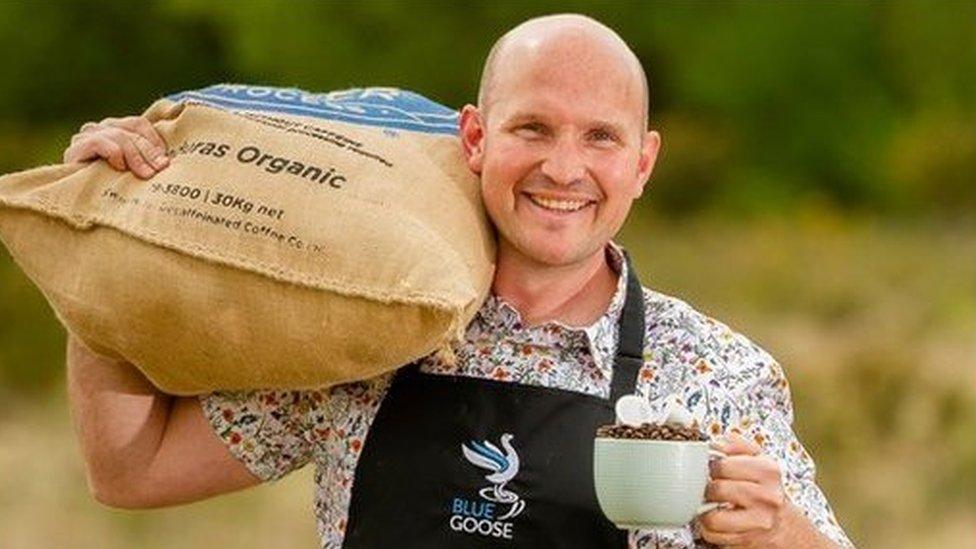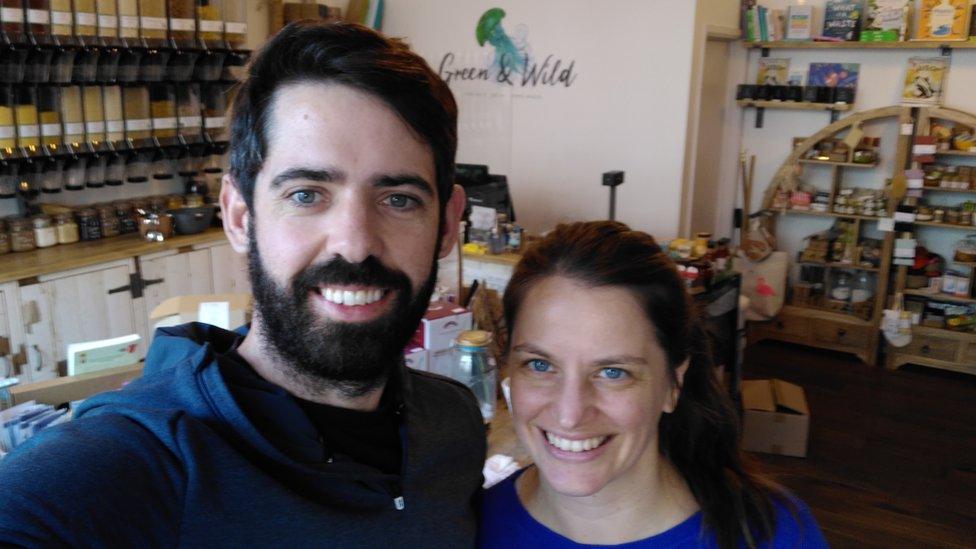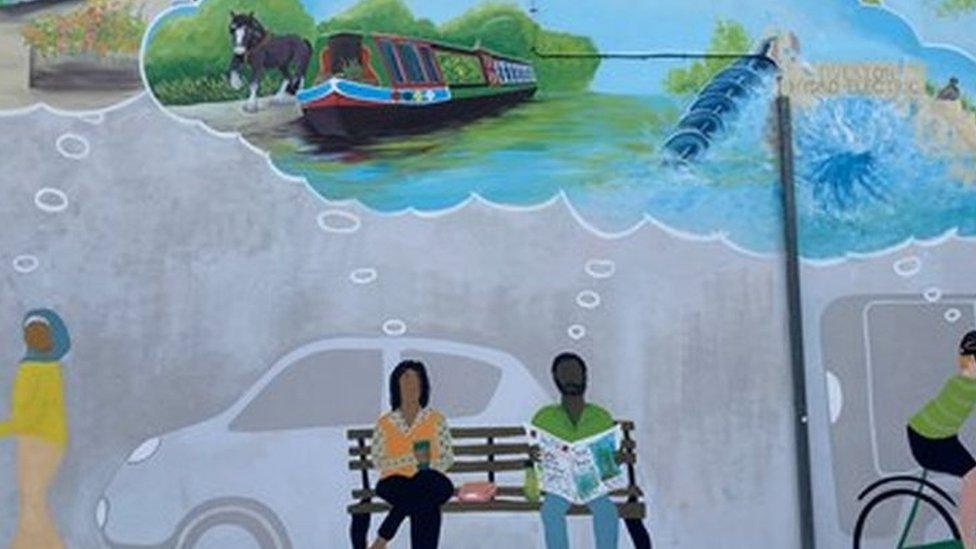Devon and Cornwall sustainable traders hit by cost of living crisis
- Published

Laura Peters owns a plastic-free store with co-founder Jaime Johnson and said November had been their quietest month in three years of trading
Sustainable traders have described the "relentless challenges" they faced in the run-up to Christmas.
"Green" business owners point to the cost of living, Royal Mail strikes and people losing sustainable shopping habits during the pandemic.
Some firms have reported losses of up to 20%.
Their struggles come as the UK is predicted to face its biggest drop in living standards on record as wages fail to align with rising prices.
Tina McKenzie, chair of the Federation of Small Businesses, said "green" firms had "faced their fair share of challenges".
She called for more support for these firms, including vouchers to help with measures like insulation or heat pumps.
A spokesman from the Department for Business, Energy and Industrial Strategy said this was a "difficult time" for small businesses and they remain "firmly on their side".
They said the Energy Bill Relief Scheme had cut energy costs and a "generous business rates package" worth £13.6bn over five years would protect businesses from large bill increases.
Stuart Elford, chief executive of the Devon and Plymouth Chamber of Commerce, said post-pandemic shopping habits had "undoubtedly changed", hitting the sustainability sector - firms with a focus on the environment and social equity.

Lex Thornely said it had been "one thing after another"
When Lex Thornely launched a sustainable coffee business in 2019 he enjoyed a steady stream of online orders.
But this Christmas, Mr Thornely said Blue Goose Eco Coffees, which makes organic coffee in aluminium-free pods, was faced with "relentless challenges".
Takings were down 20% on last year, he said.
Mr Thornely added: "It's about survival really.
"People are just doing what they need to make sure they are covering the bills.
"It's just been one thing after another," he added, referring to rising interest rates, the cost of living and Royal Mail strikes.

Rachel Saunders and Alex Dobinson said people were spending less due to worries about the financial climate
Rachel Saunders and Alex Dobinson run Green and Wild in Kingsbridge.
Takings at the shop, which sells non-plastic refills and sustainable cosmetics, were 23% down on last year, they said.
Mr Dobinson added: "I think it's energy prices, petrol prices - people are tightening their belts. There's a lot of fear about recession."
Ms Saunders said some regular customers had fallen by the wayside, stating "financial reasons" - but he argued refills can be cheaper than supermarket products.
'A return to plastic'
She added: "We set up to work in a different way to the convenience culture in place right now and with current conditions that is getting harder."
Laura Peters, who launched Newquay's plastic-free store The Good Lyfe in 2018, said November was their quietest month to date but trade had picked up in December.
Richard Eckersley, director of Earth Food Love in Totnes, said trade was "creeping back up" after a challenging year.
He said people had been cost-cutting, adding: "I think there was a post-pandemic shift away from sustainability and a return to plastic and packaging, especially with the masks and protective gear."
Mr Elford, from the Chamber of Commerce, added: "Devon and Cornwall are a national power house, they lead the country if not the world in sustainable practices so it is a shame that those industries in our counties are being affected."

Follow BBC News South West on Twitter, external, Facebook, external and Instagram, external. Send your story ideas to spotlight@bbc.co.uk, external.
Related topics
- Published16 July 2022

- Published8 November 2022
